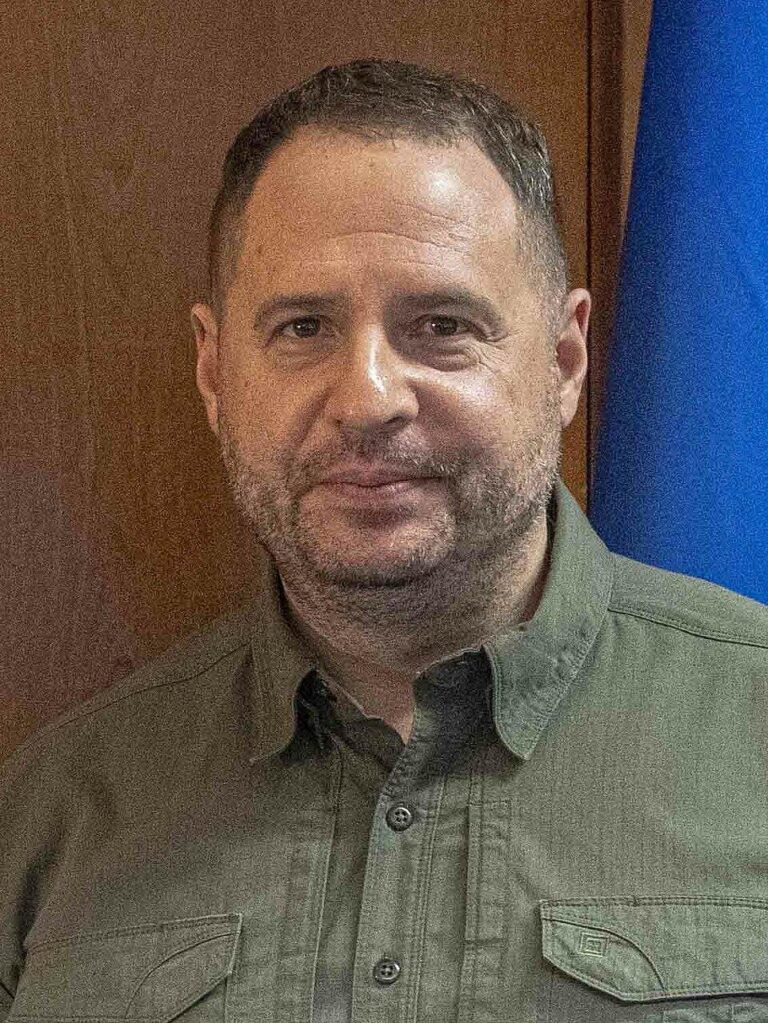Escalating Strains Between Washington and Kyiv Over Andriy YermakŌĆÖs Role
WashingtonŌĆÖs patience is wearing thin with Andriy Yermak, UkraineŌĆÖs powerful chief of staff, as concerns grow regarding his influence over KyivŌĆÖs political strategies and diplomatic engagements. According to recent reports, U.S. officials are increasingly uneasy about YermakŌĆÖs approach to sensitive negotiations and his expanding control within President Volodymyr ZelenskyŌĆÖs inner circle. This friction highlights the intricate challenges facing the transatlantic alliance as it strives to maintain robust support for Ukraine amid ongoing Russian hostilities.
Concerns Surrounding YermakŌĆÖs Leadership and Communication Practices
Inside U.S. diplomatic circles, there is mounting criticism of YermakŌĆÖs leadership style, which is often described as lacking transparency and characterized by a centralized decision-making process that sidelines seasoned advisors. This approach has reportedly caused delays and misalignments in policy execution, undermining efforts to secure consistent international backing during a critical period. Furthermore, inconsistent and unpredictable messaging from YermakŌĆÖs office has left American officials struggling to coordinate their responses effectively.
Key issues contributing to WashingtonŌĆÖs frustration include:
- Insufficient transparency: Reduced frequency of briefings on pivotal matters.
- Erratic communication: Abrupt policy changes without prior consultation.
- Weak diplomatic coordination: Limited engagement with allied partners.
| Challenge | Consequences | U.S. Concerns |
|---|---|---|
| Opaque Decision-Making | Slowed consensus-building | Undermines confidence in Ukrainian governance |
| Communication Inconsistencies | Confusing diplomatic signals | Complicates unified international response |
| Marginalization of Experts | Reduced strategic input | Limits foresight and planning |
Diplomatic Challenges and Policy Divides Affecting U.S.-Ukraine Collaboration
The relationship between Washington and Kyiv has become increasingly strained, largely due to contentious actions attributed to Andriy Yermak. U.S. officials have voiced frustration over what they see as opaque communication channels and unilateral policy decisions made without sufficient consultation. This growing mistrust is exacerbated by fundamental disagreements on security assistance frameworks and anti-corruption initiativesŌĆöareas where the U.S. had anticipated greater alignment. These tensions have contributed to delays in vital aid disbursements and prompted a reassessment of diplomatic engagement tactics.
Several factors underpin this deteriorating dynamic:
- Divergent Strategic Objectives: Differing approaches to managing relations with Russia and the conflict in Eastern Ukraine.
- Disputes Over Accountability: Conflicting expectations regarding judicial reforms and transparency enforcement.
- Communication Barriers: Limited direct interaction between key U.S. officials and YermakŌĆÖs team.
These issues have led Washington to reconsider its involvement level and increase diplomatic pressure on Kyiv to improve internal coordination and foreign policy execution.
| Area of Concern | U.S. Stance | Recent Ukrainian Actions |
|---|---|---|
| Security Assistance | Conditional on meeting reform benchmarks | Delays in compliance and demands for greater autonomy |
| Anti-Corruption Measures | Strict oversight and transparency required | Resistance to external monitoring mechanisms |
| Diplomatic Engagement | Frequent, transparent communication expected | Opaque decision-making processes within YermakŌĆÖs office |
How YermakŌĆÖs Policies Are Affecting International Aid and Support
YermakŌĆÖs controversial leadership has increasingly complicated WashingtonŌĆÖs efforts to provide essential support to Ukraine. International donors and U.S. officials report growing challenges in coordination, transparency, and trust. Diplomatic insiders indicate that YermakŌĆÖs unilateral negotiation tactics and opaque policy shifts have prompted a cautious reevaluation of ongoing aid programs. This diplomatic tension threatens to delay critical financial transfers, military assistance, and humanitarian reliefŌĆöresources that remain indispensable amid the protracted conflict.
Major obstacles linked to YermakŌĆÖs approach include:
- Ambiguity in budgetary and resource allocation for aid initiatives
- Disrupted communication channels between Ukrainian authorities and Western partners
- Declining donor confidence, jeopardizing future funding commitments
| Aid Sector | Status Before Yermak | Current Status |
|---|---|---|
| Military Aid | Consistent delivery schedules | Frequent delays and stalled approvals |
| Humanitarian Assistance | Well-coordinated distribution networks | Logistical cooperation hampered |
| Financial Support | Transparent fund management | Concerns over allocation and oversight |
Strategies to Rebuild Trust and Enhance U.S.-Ukraine Cooperation
To repair the strained relationship between Washington and Kyiv, a strategic overhaul of diplomatic engagement is essential. Prioritizing transparency by establishing regular, open communication channels will help reduce misunderstandings and ease tensions. Additionally, creating an independent bilateral task force tasked with overseeing key projects and resolving disputes can foster accountability and mutual confidence. Shifting the focus toward shared security objectives rather than personal conflicts will promote a more constructive partnership.
Operational improvements should also incorporate advanced technology and secure data-sharing systems to protect sensitive information while enhancing responsiveness. The following framework outlines critical areas for improved coordination:
| Area of Focus | Recommended Action | Anticipated Benefit |
|---|---|---|
| Communication | Implement bi-weekly secure video briefings | Minimize miscommunication and accelerate decision-making |
| Accountability | Form a joint oversight committee with U.S. and Ukrainian representatives | Build trust and ensure transparency in projects |
| Technology | Deploy encrypted platforms for data exchange | Safeguard intelligence and improve operational efficiency |
| Strategic Planning | Host annual bilateral strategy summits | Align long-term objectives and reconcile differing priorities |
Final Thoughts on the Future of U.S.-Ukraine Relations
As tensions continue to escalate, WashingtonŌĆÖs mounting dissatisfaction with Andriy Yermak reflects deeper challenges in managing the U.S.-Ukraine partnership amid complex geopolitical realities. The trajectory of this evolving relationship will significantly influence diplomatic and strategic decisions moving forward. What remains clear is that both nations face unprecedented stakes, necessitating a recalibrated approach to cooperation if they are to sustain a united front against ongoing threats.







